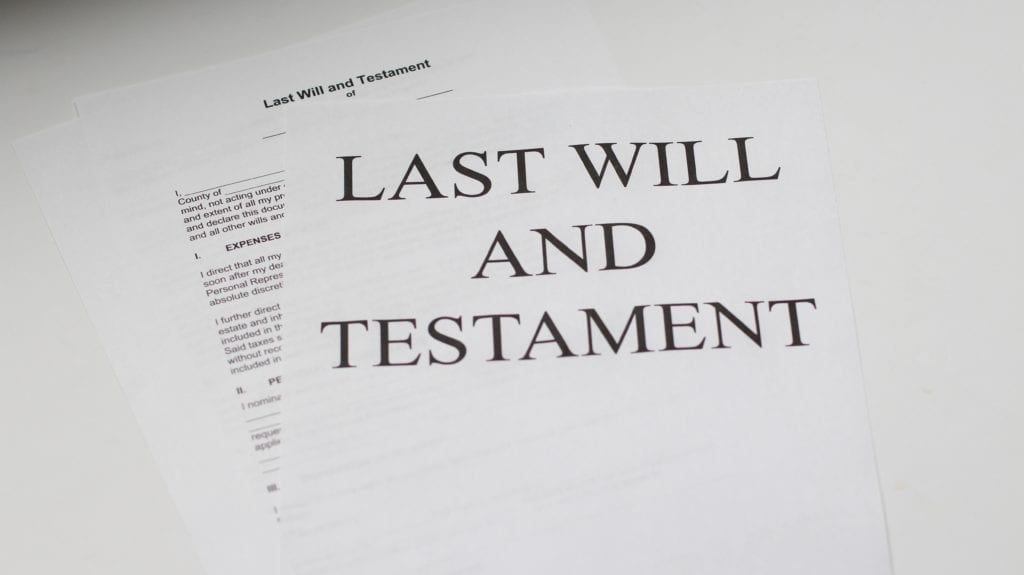If you have property, financial assets, or children, it is important to make sure that you create a legal plan for your estate. Two processes you can take to make sure your intentions come to fruition are creating wills and trusts.
Wills and trusts are legal documents created with the required assistance of attorneys that direct how your property will be handled. Though there are many similarities, wills and trusts have key distinctions that are important to understand before you begin estate planning.
Trusts
A trust, or living trust, is a legal document that allows you to designate a “trustee” who is a person or institution responsible for managing the assets in your trust both during your lifetime and after your death.

A trust names beneficiaries, people who you designate to receive your assets. You can create a trust with two types of beneficiaries — people who will receive your assets during your lifetime and people who will receive your assets only after your death.
A trust, unlike a will, does not automatically include all of your property, but only the property transferred to your trust. Additionally, it must be actively managed, which makes it more expensive than a will.
One of the biggest advantages of a trust is that your trustee can manage your property if you are ever seriously disabled. Additionally, after your death, a trust does not need to undergo the probate process of law that a will requires.
With a living trust, you can be the “trustee” of your own trust, though you must designate who will become the trustee after your death or in the event of serious disablement.
Wills
A will is a legal document in which you state how you want your property to be handled after your death. It includes specific directions as to who the beneficiaries are (the people that receive your property) and how that property will be allocated if there is more than one beneficiary.
Unlike a trust, a will applies to all of your property and does not require you to manage and add new funds to it. This property, however, does not include assets under a joint tenancy (property shared by multiple people) or assets in a trust.
A will is essential if you have children under 18, as a will alone, and not a trust, can allow you to name a guardian for your child or children. Another benefit of a will is that you can provide specific directions for funeral arrangements that people must adhere to.
Unlike a trust, a will must pass probate in court. This is a process in which a judge examines the validity of the will. In other words, if the will was created lawfully and is accurate, then it will be approved during probate.

When creating a will, you must designate an executor of a will, which is the person who is lawfully responsible for managing your estate after your death. The executor is in charge of distributing your assets to your beneficiaries according to the directions provided in your will. Additionally, the executor is responsible for settling outstanding financial obligations and ensuring that all of your assets are accounted for.
If you want to make the executor’s task straightforward and streamline the process of distributing your assets, it is important that you clearly state all property and financial assets in your will.
Bottom Line
While a trust is more expensive and requires active management, it offers advantages over a will such as bypassing the probate process and allowing a trustee to manage your property in case you become incapacitated. The advantages of a trust, however, only outweigh the costs of management if you continue to contribute to the trust throughout your lifetime.
A will, on the other hand, is inexpensive and allows you to specify funeral arrangements and name a guardian for your children. Additionally, it applies to all of your property and does not require the property to be transferred into it. A will must be approved during probate, however, that process is quick and seamless as long as the will is valid.
If you are still uncertain which choice is right for you, or if you have any detailed questions specific to your unique case, it is wise to talk to an attorney early in the estate planning process. For those living in Cook County, Illinois, Mark R. Schottler offers free 30-minute consultations to discuss the future of your estate.
No matter which course you choose, it is important that you create a plan for your estate. By failing to act, your estate may be subject to a long and arduous probate process that could leave your intended beneficiaries without their intended assets.

